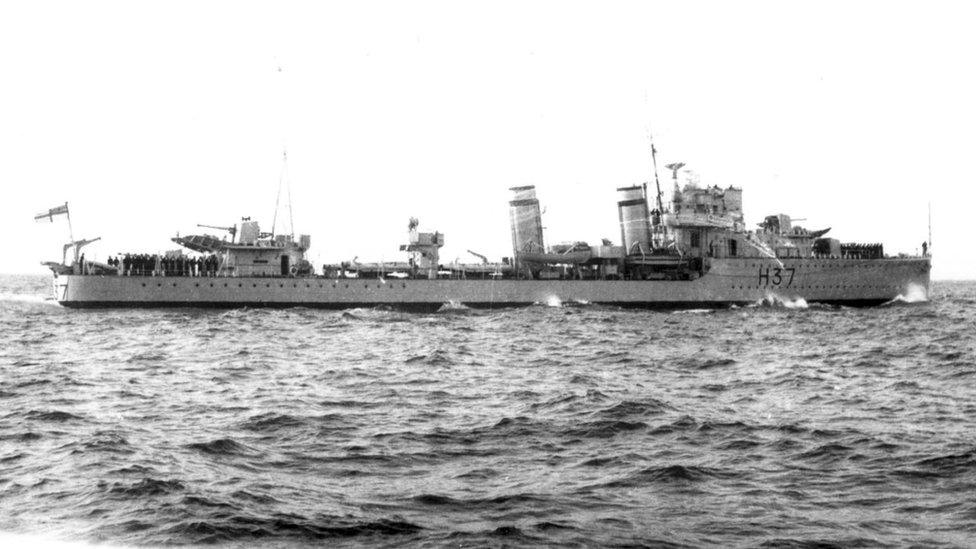Cardiff's peace temple tribute to fallen WW1 soldiers
- Published
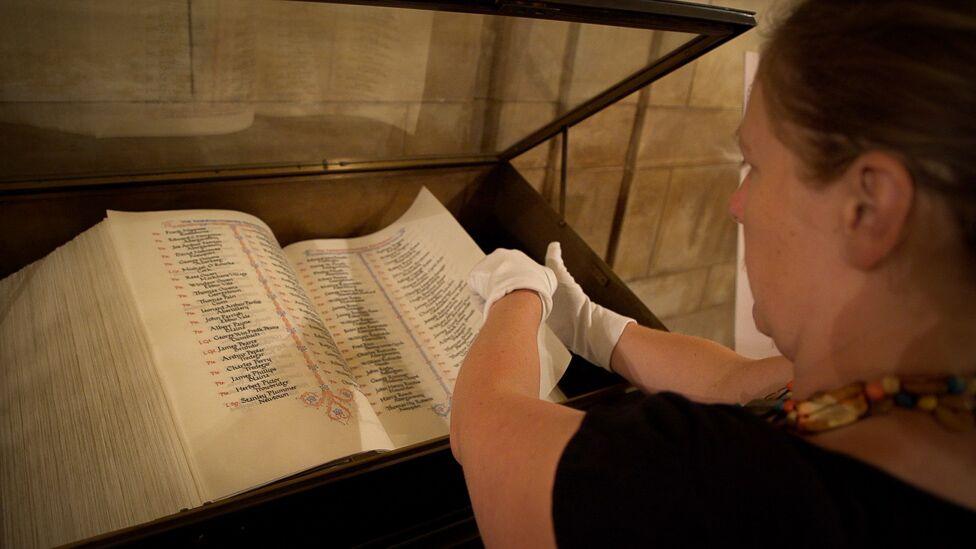
The book of remembrance is housed in the Temple of Peace and Health in Cardiff
Every morning, in an underground crypt, a single page in a hand-written book is turned.
The book of remembrance contains the names of 40,000 fallen Welsh soldiers of World War One.
The ceremony, at 11:00 each day, carries little pomp.
The page-turning is sometimes viewed by visitors to the Temple of Peace and Health in Cardiff city centre - but is often done alone, in silence, by a single worker.
In a building promoting peace and prosperity following two world wars, it is perhaps little surprise that this simple act carries on.
"The founding principles of this building and the founding principles of the UN of tolerance, respect, respect for international law and human rights are there for all of us and really important to remember," said one of those charged with the daily memorial, Susie Ventris Field of the Welsh Centre for International Affairs.
"I think that's as important today as it ever has been."
The hand-written book contains the names of 40,000 Welsh soldiers who died
She is one of a handful of workers responsible for turning the page in a ceremony which first took place to help give Welsh families of those lost in the conflict a place to remember their loved ones.
Built in 1938, the Temple of Peace and Health was the idea of philanthropist Lord Davies who was driven to build a lasting reminder of the war.
It soon became a focal point for Welsh internationalism as the home of the League of Nations Union as well as a driver in helping to confront public health issues in Wales such as mass screening for tuberculosis.
It also acted as a memorial for the thousands of Welsh families for whom travelling to a foreign grave was simply unachievable.
"The building is built around the crypt and the World War One book of remembrance but also as a symbol of hope for the future," Ms Ventris Field said.
"The idea was really to fight the twin scourges of war and disease from the building and that was very much its purpose.'
And 105 years on from the start of World War One, the founding principles of the grand art deco memorial may shine brightly - but its health is not so good.
With its leaking roof, empty bookshelves and halls rented out for events, the temple is now as likely to be used as a conference venue as it is a forum for world affairs.
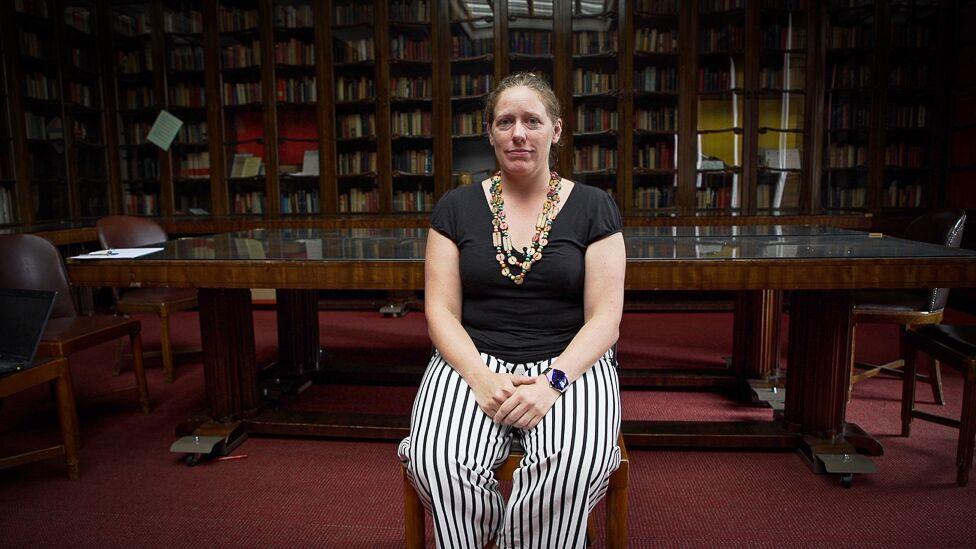
Susie Ventris Field is one of a handful of people who perform the daily ceremony
But Ms Ventris Field believes its relevance is as important now as it has ever been.
"Wales continues to try," she said.
"It was the first fair trade nation. Wales has an ambition to be the first nation of sanctuary.
"As we see with global trends, we see the situation with America and Iran, we see lots of threats, actually, to peace.
"We have to be alert to it. We have to be alert to rises in populism that can sometimes lead away from democracy and I think those threats are really important to remember."
And they will continue to be, each day at 11:00, as another page is turned.
- Published4 August 2019
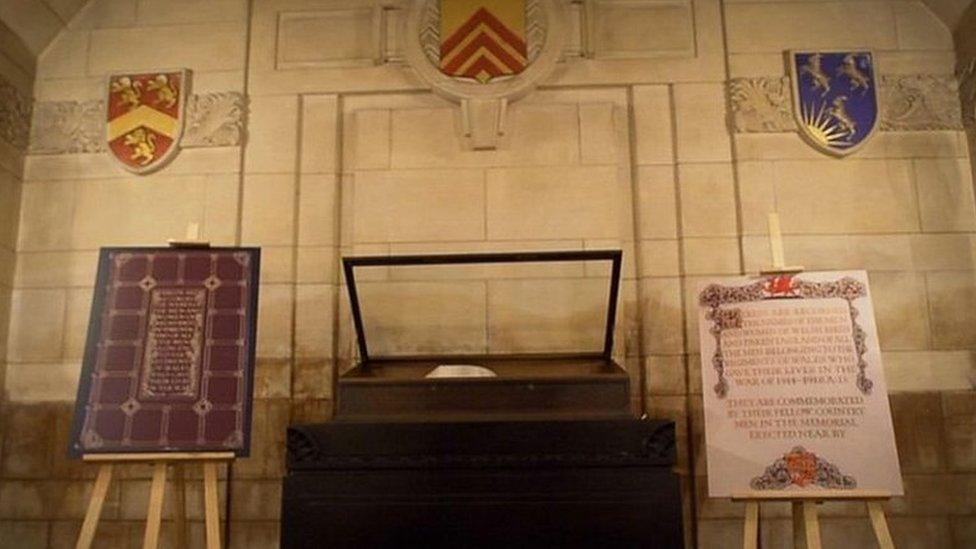
- Published8 November 2018
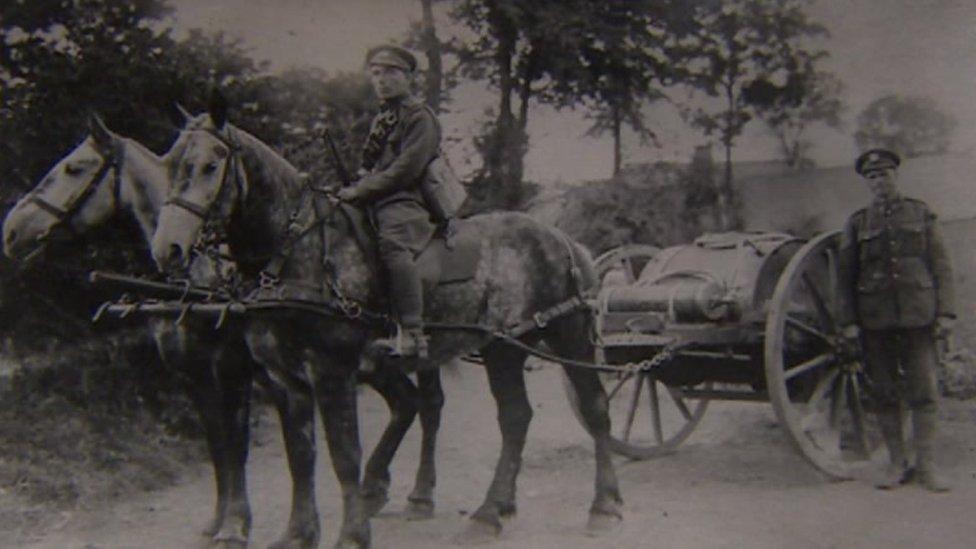
- Published7 November 2018
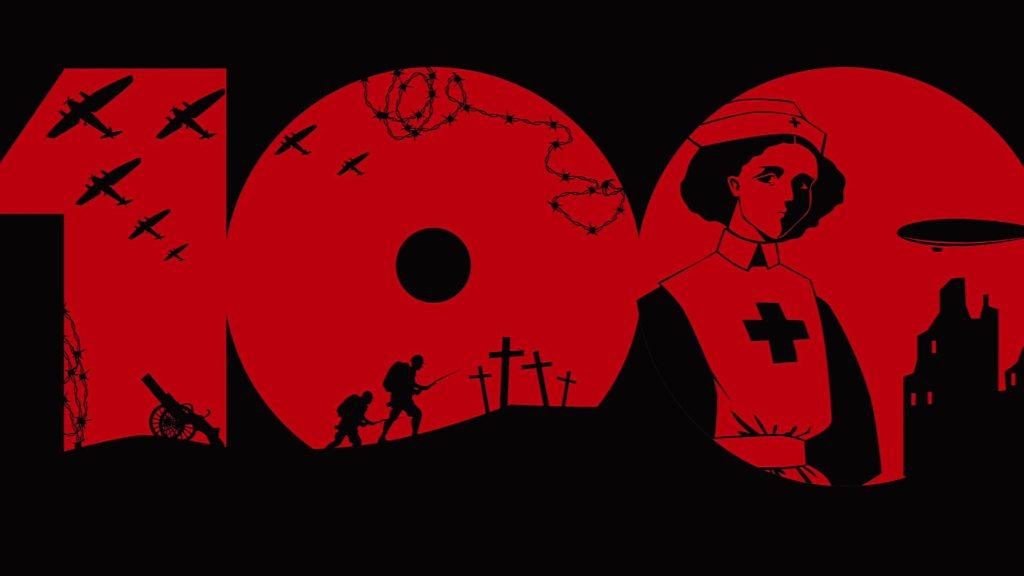
- Published10 November 2018
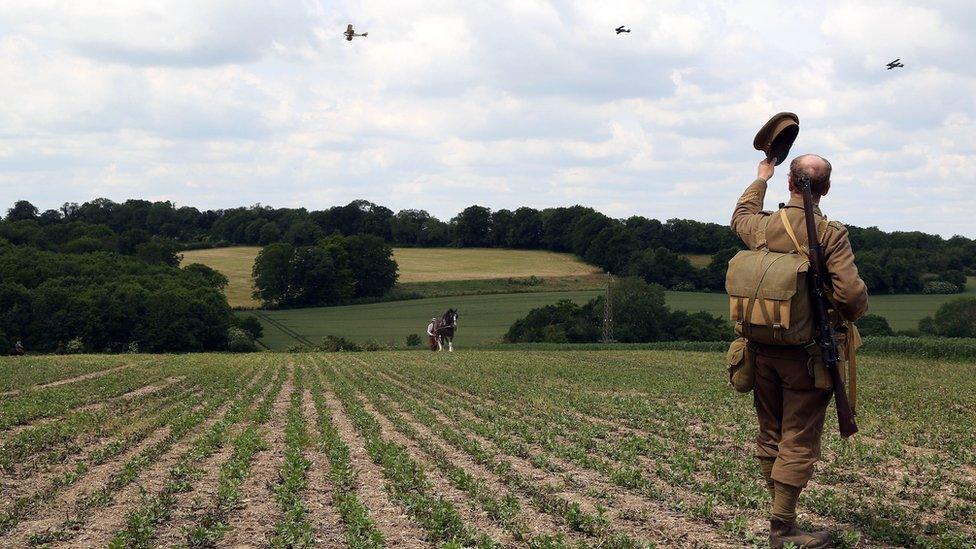
- Published6 November 2018
